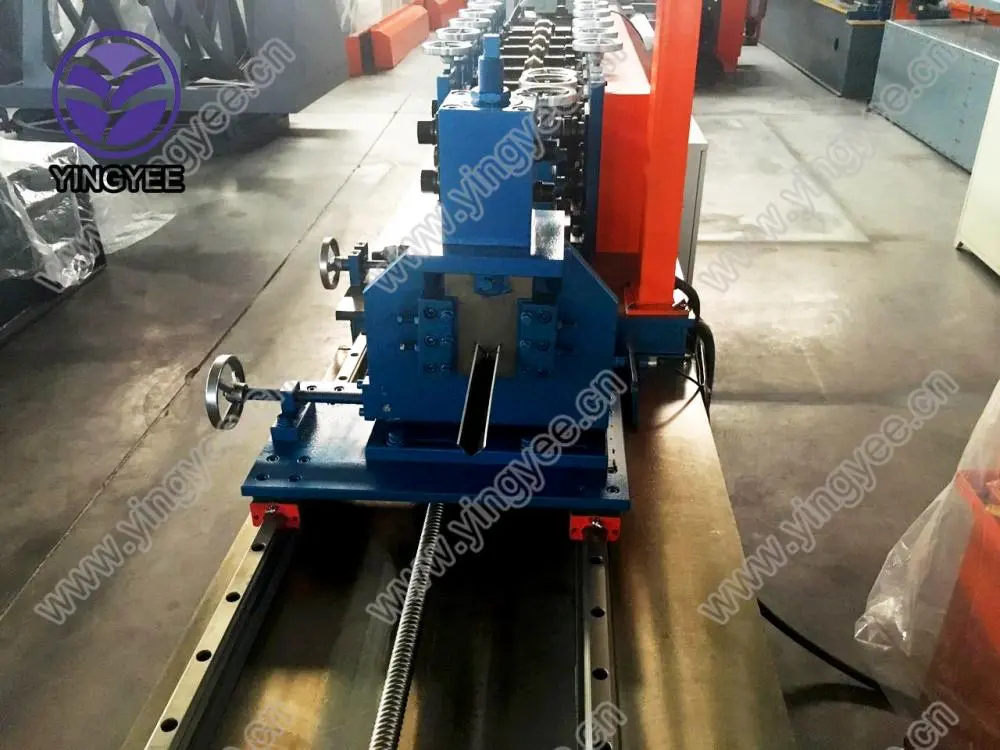
The Advancements in Aluminum Strut Channel Roll Forming Machines
In the ever-evolving world of manufacturing, the production of aluminum strut channels has seen significant advancements thanks to modern roll forming technology. Aluminum strut channels are vital components in various construction and industrial applications, providing essential support and structural integrity. The innovation captured in aluminum strut channel roll forming machines has dramatically improved efficiency, precision, and overall product quality.
Understanding Roll Forming
Roll forming is a process that involves feeding a continuous strip of metal through a series of rollers that progressively shape it into desired dimensions. This method is particularly effective for producing long lengths of uniform sections, making it ideal for manufacturing strut channels. Utilizing this technology for aluminum presents unique advantages, as aluminum is lightweight yet strong, corrosion-resistant, and easy to work with.
The Role of Aluminum Strut Channel Roll Forming Machines
Aluminum strut channel roll forming machines are designed specifically for the task of creating precision channels from aluminum sheets or coils. These machines optimize the roll forming process by incorporating advanced features such as automated controls, high-speed operation, and integrated cutting systems. As a result, manufacturers can produce large quantities of strut channels with consistent dimensions and minimal waste.
One of the standout features of modern roll forming machines is their ability to accommodate different sizes and profiles of strut channels. With adjustable roller stations, manufacturers can swiftly change the tooling to produce varying channel sizes without extensive downtime. This flexibility is vital for operations that cater to diverse customer needs, making it easier to switch between projects without compromising efficiency.
Efficiency and Cost-Effectiveness

The rise of aluminum strut channel roll forming machines has also led to significant improvements in manufacturing efficiency. These machines operate at high speeds, allowing for faster production cycles. The automated aspects of these machines reduce the need for manual labor, cutting labor costs and minimizing the potential for human error.
Furthermore, the roll forming process itself is less wasteful compared to traditional methods such as extrusion or machining. The ability to feed continuous coil stock into the machine means that nearly all of the raw material is utilized, significantly lowering material waste. This aspect not only reduces costs but also aligns with the growing emphasis on sustainability within the manufacturing sector.
Quality Control and Precision
Precision is paramount in manufacturing, especially when it comes to structural components like aluminum strut channels. Modern roll forming machines are equipped with sophisticated computer software that monitors each stage of the production process. This technology ensures that every channel produced meets stringent quality standards, maintaining uniformity in thickness, dimensions, and finish.
Additionally, integrated inspection systems can identify defects in real-time, allowing for immediate corrective action. The combination of automation and quality control results in a more reliable production process, reducing the likelihood of defects that can lead to material waste and project delays.
Future Trends in Roll Forming Technology
As industries continue to evolve, the demand for versatile and efficient manufacturing solutions will grow. Future innovations in aluminum strut channel roll forming machines may include enhanced automation, smarter resource management through IoT connectivity, and even greater energy efficiency. Manufacturers are increasingly looking for solutions that not only improve productivity but also address environmental concerns.
In conclusion, aluminum strut channel roll forming machines represent a significant leap forward in manufacturing technology. Their capacity for high-speed production, versatility, and quality assurance provides manufacturers with the tools they need to meet the demands of a fast-paced market. As technology advances, these machines will undoubtedly play a crucial role in shaping the future of structural components in various industries.